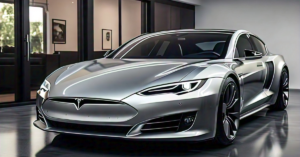When it comes to acquiring a new car, most consumers face a fundamental decision: should they lease or buy? Both options offer distinct advantages and drawbacks that can significantly impact your finances and lifestyle.
Understanding the pros and cons of leasing versus buying will help you make an informed choice based on your financial situation, driving habits, and long-term goals. This article provides a detailed breakdown of each option to guide you through the decision-making process.
1. Understanding the Basics of Leasing and Buying
1.1 What is Leasing a Car?
Leasing a car involves paying for the use of the vehicle over a set period, usually 2 to 4 years. You make monthly payments, similar to renting, but the car is not yours at the end of the lease. Once the lease term is over, you typically return the car to the dealership, though you may have the option to purchase it for a predetermined price.
1.2 What is Buying a Car?
Buying a car means owning the vehicle outright, either through a cash purchase or financing with a loan. With a loan, you make monthly payments until the car is paid off, after which you own the car and can continue using it without further payments (aside from maintenance and insurance).
2. The Pros and Cons of Leasing a Car
Leasing has grown in popularity due to its flexibility and affordability. However, it also comes with limitations that may not suit everyone.
2.1 Pros of Leasing
Lower Monthly Payments
Leasing typically involves lower monthly payments compared to financing a car purchase. Since you’re only paying for the car’s depreciation during the lease term, not the entire value of the vehicle, the payments are usually more affordable.
Access to Newer Models
Leasing allows you to drive a new car every few years. This means you’ll always have access to the latest models, technologies, and safety features, which can enhance your driving experience and provide greater peace of mind.
Fewer Maintenance Concerns
Leased cars are often under the manufacturer’s warranty throughout the lease period, meaning major repairs and maintenance costs are usually covered. This reduces the likelihood of unexpected expenses.
Flexibility
Leasing provides flexibility for people who like to switch cars frequently. At the end of the lease term, you can easily return the vehicle and lease a new one, without the hassle of selling or trading in a car.
Lower Upfront Costs
Leasing usually requires a smaller down payment compared to buying, making it more accessible for those who may not have a large amount of cash upfront.
2.2 Cons of Leasing
No Ownership
At the end of the lease, you don’t own the vehicle. All the money you’ve paid goes toward the use of the car, not toward ownership. This can feel like wasted money compared to buying, where you eventually own the asset.
Mileage Restrictions
Leases come with mileage limits, usually between 10,000 and 15,000 miles per year. Exceeding these limits results in additional fees, which can add up quickly for people who drive long distances.
Customization Limitations
Since you’re not the owner, you cannot customize the car with aftermarket parts or accessories. Any modifications must be removed or repaired before returning the vehicle, or you may face penalties.
Ongoing Monthly Payments
Leasing requires continuous monthly payments. If you prefer to eventually eliminate car payments, leasing may not be ideal, as you’ll always have a payment as long as you’re leasing.
End-of-Lease Fees
Leasing contracts often come with fees for wear and tear beyond normal use. If the car is returned with excessive damage, scratches, or interior wear, you may face costly penalties.
3. The Pros and Cons of Buying a Car
Buying a car provides the advantage of ownership and long-term financial benefits, but it also comes with higher upfront costs and responsibilities.
3.1 Pros of Buying
Ownership
When you buy a car, it’s yours to keep once the loan is paid off. You can keep it as long as you want, sell it, or trade it in at any time. Ownership provides flexibility and the potential for long-term savings, as you eventually eliminate monthly payments.
No Mileage Restrictions
Unlike leasing, there are no mileage limits when you own a car. This is particularly beneficial for those who drive frequently or take long road trips. You won’t have to worry about extra fees for exceeding a mileage cap.
Customization Freedom
As the owner, you have full control over the car’s customization. Whether you want to add new features, upgrade the sound system, or change the appearance, you’re free to modify the vehicle to your liking.
Better Long-Term Value
While the upfront and monthly costs may be higher when buying a car, the long-term value can be better. Once the car is paid off, you no longer have monthly payments, and you can continue using the car for years. Additionally, you can sell or trade in the vehicle to recoup some of your investment.
Building Equity
When you buy a car, especially if you’re financing, each payment goes toward building equity in the vehicle. This means you’re gradually owning more of the car, rather than simply paying for the right to use it.
3.2 Cons of Buying
Higher Monthly Payments
Financing a car typically involves higher monthly payments compared to leasing, as you’re paying for the entire cost of the car, plus interest. This can strain your budget if you prefer lower payments.
Depreciation
Cars lose value rapidly, particularly in the first few years of ownership. While you own the car, its resale value will decline, and you may end up owing more on the loan than the car is worth if you try to sell it early.
Maintenance Costs
As a car ages, the likelihood of repairs and maintenance expenses increases. While newer cars come with warranties, older vehicles may require significant upkeep, which can be costly over time.
Larger Down Payment
Buying a car often requires a larger upfront payment compared to leasing. This can be a barrier for those who may not have enough savings to cover a substantial down payment.
Long-Term Commitment
Buying a car is a long-term commitment. If you want to sell or trade in the car early, you may face financial loss due to depreciation. Additionally, selling a car can be time-consuming and inconvenient.
4. Leasing vs. Buying: Which Option is Right for You?
The decision to lease or buy a car ultimately depends on your financial situation, driving habits, and personal preferences. Here are some key considerations to help guide your choice:
4.1 When Leasing is a Better Option
- You Prefer Lower Monthly Payments: Leasing typically has lower monthly costs, which can free up more of your budget for other expenses.
- You Want to Drive a New Car Every Few Years: If you like having the latest technology and features, leasing allows you to drive new cars more frequently.
- You Don’t Drive Long Distances: If you drive within the mileage limits set by leasing contracts, you can avoid additional fees.
- You Want Minimal Maintenance Concerns: Leased cars are often covered by the manufacturer’s warranty, reducing repair costs.
4.2 When Buying is a Better Option
- You Plan to Keep the Car Long-Term: If you intend to keep the car for many years, buying is often more cost-effective in the long run.
- You Drive Long Distances: Without mileage restrictions, owning a car is more practical for people who drive a lot or take long trips.
- You Want to Build Equity: Owning a car allows you to build equity, which can be valuable if you decide to sell or trade it in later.
- You Want Customization Freedom: If you like customizing your vehicle, ownership gives you the flexibility to make modifications without penalties.
5. Conclusion: Weighing the Costs and Benefits
Deciding whether to lease or buy a car depends on your priorities. Leasing offers flexibility, lower monthly payments, and access to the latest models, making it ideal for people who value convenience and drive within limited mileage.
Buying, on the other hand, provides long-term savings, ownership, and the freedom to customize and drive without restrictions, making it better for those who want to invest in a vehicle for the long haul.
Before making a decision, carefully assess your financial situation, driving habits, and future needs. Both leasing and buying have their advantages and disadvantages, so choose the option that best aligns with your lifestyle and goals.



